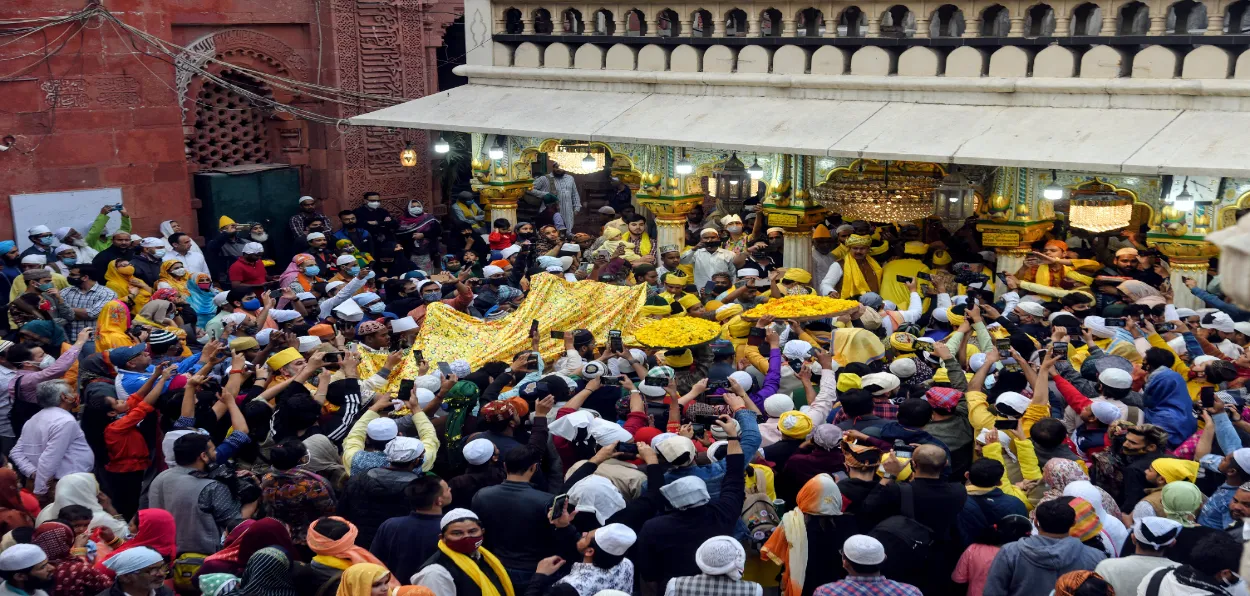
Amir Suhail Wani
India's rich spiritual heritage and mystical traditions have profoundly influenced its society and culture from ancient Vedic times. Spiritual teachings have guided philosophical thought, with revered sages occupying a paramount position in society. The Upanishads, ancient texts of profound wisdom, epitomize this spiritual legacy, while modern thinkers such as Sri Aurobindo, Inayatullah Khan, Vivekananda, and Sarvapali Radhakrishnan have offered contemporary interpretations suited to today's intellectual and existential challenges.
Friday Musings
Revisiting India's spiritual tradition is imperative, particularly amidst the societal divisions of today’s world. The Advaita Vedanta philosophy (Spiritual Non-Dualism) emphasizing the unity of humanity and creation, is relevant in fostering harmony. Embracing these teachings promises spiritual fulfillment and addresses social injustices, paving the way for a more equitable society founded on timeless values of truth, goodness, beauty, and justice.
In the face of mounting individual anxieties, ancient texts like the Bhagavad Gita and Upanishads offer solace and guidance. Notably, these spiritual traditions have served as a unifying force amidst India's vast geographical and linguistic diversity. Today, amid a renewed thrust for national integration, reclaiming these traditions which form the bedrock of national unity is needed.
The dynamism of Indian spirituality is evident in its ability to adapt to changing circumstances, as seen in its response to the arrival of Islam in the 13th century. Hindu mystics and Islamic influences interacted, giving rise to movements like Bhakti and Sikhism. This interplay of spiritual currents, exemplified by the works of poets like Tulsidas, Meera Bhai, and Kabir, transcended barriers and is a legacy that endures to this day.
Mysticism and spiritual traditions have always celebrated the values of inclusion and plurality. These have aspired to bring into the social mainstream even those who were abandoned by society. This tendency to take everybody along makes our spiritual traditions effective for socio-economic change. The sages and saints have always acted as social anchors and inspired people to look beyond their finite religious lens. This training had a deep impact on our social contract and national interests as it tried to glue people.
It has been said that while as scholars from the same religion may disagree, sages and saints from different religions are always on the same page. People have discovered striking similarities between Sankara and Ibn Arabi; Ramanunja and Sheikh Ahmad Sirhindi; and Rabia Basri and Meera Bai. This convergence leads people to the understanding that we are the children of the same God and the differences on account of religion, culture, and ethnicity are superficial.
The mystical doctrine of love is also catalytic in forging the feelings of comradeship and garnering respect for each other. It is essential to all mystical and spiritual traditions that they believe that in treating fellow humans with love and respect, one loves and respects God. This vision transforms the perception as under its influence, humans start seeing the creation as divine, and the feelings of hatred, difference, and animosity are erased from their minds. Such individuals work selflessly for the welfare of the nation and humanity as exemplified by sages like Kapila, Agastya, and Nizamuddin to modern-day sages like Mahatma Gandhi, Rabindranath Tagore and Maulana Azad.
Reviving the traditions of Vedas and Upanishads is also paramount for fostering national integration. These ancient texts contain profound wisdom and insights into the human condition and offers guidance on morality, ethics, and the interconnectedness of all beings. By reconnecting with these spiritual roots, individuals can cultivate a deeper understanding of themselves and others. Furthermore, the revival of these traditions can serve as a unifying force, transcending regional, linguistic, and religious divides to create a shared sense of identity and purpose. Embracing the principles of peace, harmony, and universal welfare espoused in the Vedas and Upanishads can inspire collective action toward addressing contemporary challenges such as social inequality, environmental degradation, and communal strife, thereby promoting the holistic well-being of society as a whole.
ALSO READ: Why Muslim scholars need to work on revival of Philosophy
By embracing these teachings, individuals are encouraged to transcend narrow sectarian identities and recognize the essential humanity in each other, regardless of religious or cultural differences. Moreover, the shared reverence for these spiritual traditions can serve as a common ground for dialogue and reconciliation among diverse communities, fostering mutual respect and harmony. Through the dissemination of these universal values, the revival of Indian spiritual traditions has the potential to counter divisive ideologies and promote a culture of inclusivity, solidarity, and peace.
